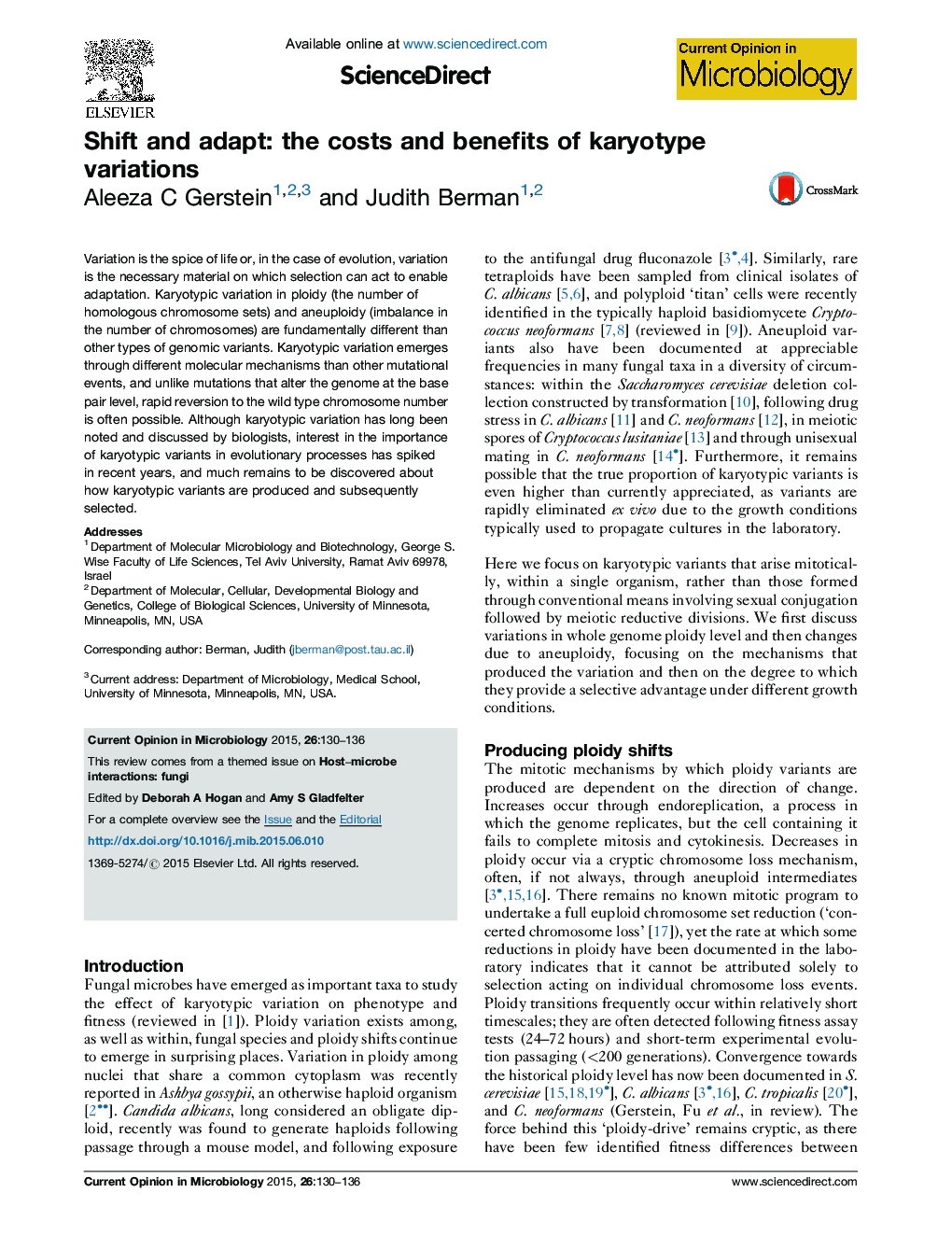| Article ID | Journal | Published Year | Pages | File Type |
|---|---|---|---|---|
| 3399026 | Current Opinion in Microbiology | 2015 | 7 Pages |
•We review recent studies of ploidy and aneuploidy variants and how they affect fitness.•Parasexual ploidy shifts appear in fungal microbial species in the absence of meiosis.•Ploidy shifts appear for cryptic reasons with few consistent selective advantages.•Aneuploidy appears in a large proportion of cells exposed to an antifungal drug.•Specific aneuploidies cause adaptive phenotypes under specific growth conditions.
Variation is the spice of life or, in the case of evolution, variation is the necessary material on which selection can act to enable adaptation. Karyotypic variation in ploidy (the number of homologous chromosome sets) and aneuploidy (imbalance in the number of chromosomes) are fundamentally different than other types of genomic variants. Karyotypic variation emerges through different molecular mechanisms than other mutational events, and unlike mutations that alter the genome at the base pair level, rapid reversion to the wild type chromosome number is often possible. Although karyotypic variation has long been noted and discussed by biologists, interest in the importance of karyotypic variants in evolutionary processes has spiked in recent years, and much remains to be discovered about how karyotypic variants are produced and subsequently selected.
